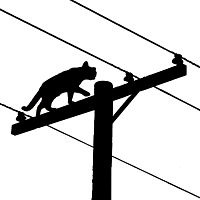About
Launched:
2017
Record Updated:
Jun 03, 2025
Open scholarly dataset
Web archiving system
The PUDL Project (pronounced puddle) is an open source data processing pipeline that makes US energy data easier to access and use programmatically. PUDL provides free, up to date, version-controlled and analysis-ready energy data products.
Hundreds of gigabytes of valuable data are published by US government agencies, but it's often difficult to work with. PUDL takes the original spreadsheets, CSV files, and databases and turns them into a unified resource. This allows users to spend more time on novel analysis and less time on data preparation.
The project is focused on serving researchers, activists, journalists, policy makers, and small businesses that might not otherwise be able to afford access to this data from commercial sources and who may not have the time or expertise to do all the data processing themselves from scratch. PUDL data supports a number of other open-source energy modelling and analysis tools, such as PyPSA-USA, PowerGenome, and OpenGridEmissions.
